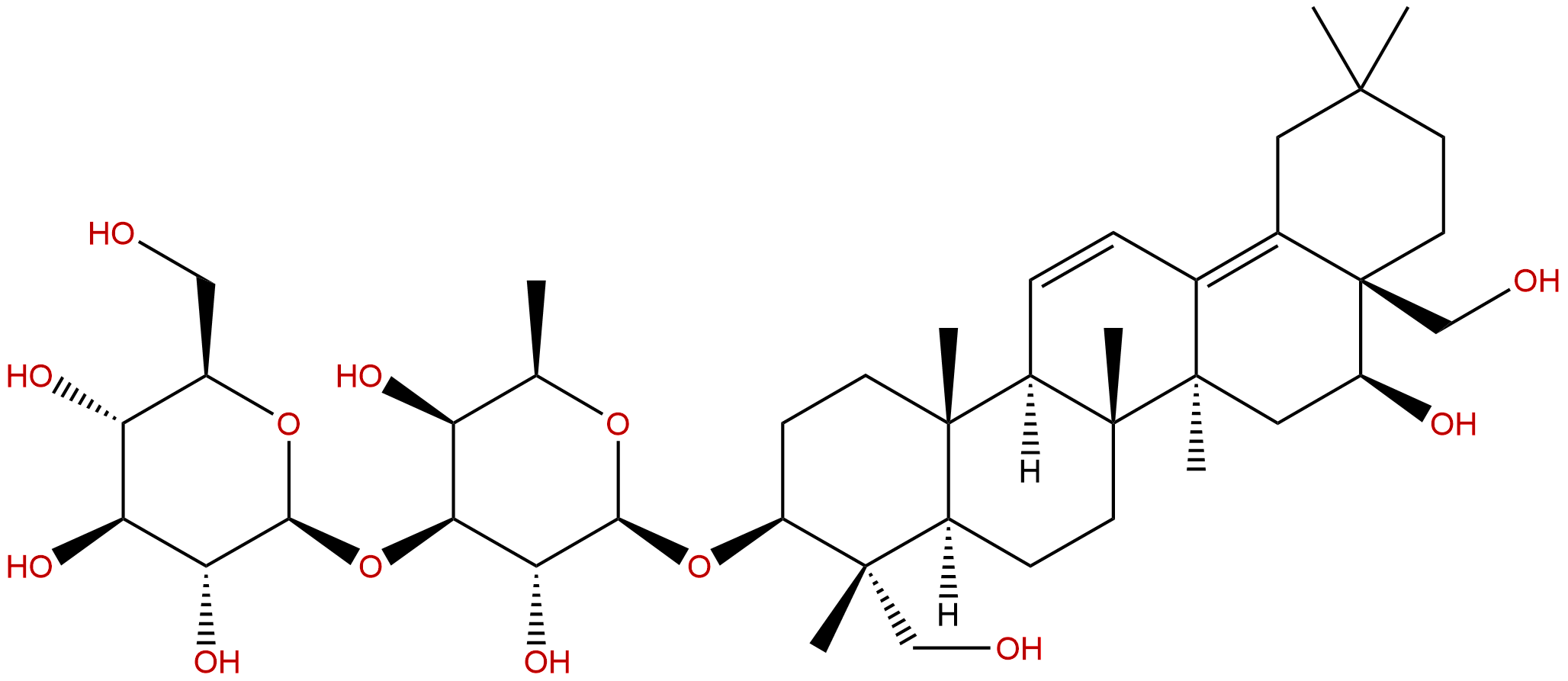
Saikosaponin B1CAS No.:58558-08-0
|
||||||||||
 |
|
|
||||||||

| Catalogue No.: | BP1239 |
| Formula: | C42H68O13 |
| Mol Weight: | 780.993 |
Product name: Saikosaponin B1
Synonym name:
Catalogue No.: BP1239
Cas No.: 58558-08-0
Formula: C42H68O13
Mol Weight: 780.993
Botanical Source: Bupleuri Radix
Physical Description:
Type of Compound: Triterpenoids
Purity: 95%~99%
Analysis Method: HPLC-DAD or/and HPLC-ELSD
Identification Method: Mass, NMR
Packing: Brown vial or HDPE plastic bottle
Storage: Store in a well closed container, protected from air and light. Put into refrigerate or freeze for long term storage.
Whenever possible, you should prepare and use solutions on the same day. However, if you need to make up stock solutions in advance, we recommend that you store the solution as aliquots in tightly sealed vials at -20℃. Generally, these will be useable for up to two weeks.
The product could be supplied from milligrams to grams
Inquire for bulk scale.
Description:
Saikosaponin B1 may be as anti-schizophrenic candidate drugs, it can suppress the signal transduction after binding of EGF.
References:
Biomed. Chromatogr., 2015, 30(3):191-6.
Recognition and identification of active components from Radix Bupleuri using human neuroblastoma SH-SY5Y cells
Aim to screen active components of Radix bupleuri (a traditional Chinese herb) and discover novel anti-schizophrenic candidate drugs by using human neuroblastoma SH-SY5Y cells. SH-SY5Y cells were used for preparation of the stationary phase in the Cell Membrane Chromatography (CMC) model.
METHODS AND RESULTS:
Retention components by the SH-SY5Y/CMC model were collected and then analyzed by GC/MS under the optimized conditions in offline conditions. After investigating the suitability and reliability of the SH-SY5Y/CMC method using amisulpride and haloperidol as standard compounds, this method was applied to screening active components from the extracts of Radix bupleuri. Retention components of SH-SY5Y/CMC model were saikosaponin A, Saikosaponin B1, saikosaponin B2, saikosaponin C and saikosaponin D, which were identified by the GC/MS method. In vitro pharmacological trials-MTT, Saikosaponin B1, saikosaponin B2 and saikosaponin C could protect SY5Y cells. The protect effect of Saikosaponin B1 and saikosaponin C were concentration dependent. Saikosaponin A and saikosaponin D inhibited cell viability at concentrations greater than 30 μg/mL (P<0.05). Via SH-SY5Y/CMC method and SH-SY5Y MTT trial, we rapidly detected target components from Radix bupleuri, accurately identified them and found out their different effects on SH-SY5Y cells.
CONCLUSIONS:
Saikosaponin B1, saikosaponin B2 and saikosaponin C may be as anti-schizophrenic candidate drugs.